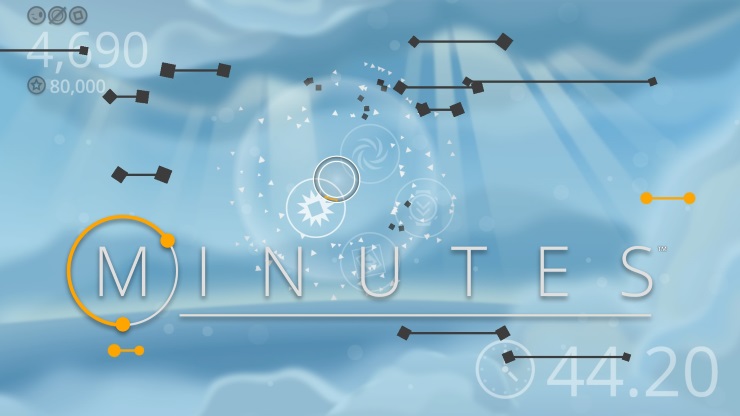Richard Ogden has achieved many things in his career in the gaming industry. It would be fair to say that he’s managed to experience all levels of development, from running your own company to being part of one of the household names in game development: Codemasters. His latest game (Minutes) is a mixture between bullet hell games and collect ‘em ups, is out now. With Richard being so busy, it seemed perfect timing to interrupt him and ask him a few questions, starting with the most obvious one I can think of, and asking about his background.
He cut his teeth on one of the first home computers available the ZX81, with a massive 1k of memory. Was he a self-taught programmer?
“Yes. My dad came home with a ZX81, one day back in well 1981, and, it just got me hooked. It was like nothing else I’d seen though I’d seen a few green-screen Commodore PETs in a university computing science department prior to that. I just started learning how to program because that seemed to be a fun and creative thing to do. A bit more advanced than building stuff from cardboard which I’d been doing a few years before. Formative years for sure. Had a spectrum after that. And an Atari ST, and C64”.
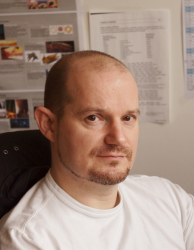 “I progressively got more advanced with the programming with every computer. No internet really then so lots of book reading. Probably way too advanced for my age. I remember doing the thing with graph paper where you would map out the graphics and then convert to numbers and type them in to make sprites. Photoshop?! What!?”
“I progressively got more advanced with the programming with every computer. No internet really then so lots of book reading. Probably way too advanced for my age. I remember doing the thing with graph paper where you would map out the graphics and then convert to numbers and type them in to make sprites. Photoshop?! What!?”
That made me laugh. Richard came from the days before the likes of unity, where most games were designed from the ground up and hard coding was the norm. Most games took hundreds of lines of code without any toolsets that could be used to make the task easier. But what prepared him for his future career?
“Well, I didn’t really imagine that at the time. I was aware that people were making games as a business but it didn’t connect that I could be doing it one day. Everyone who grew up in the eighties will be aware of Codemasters and what they brought to gaming at that time. Richard was involved in a lot of the background work behind two of their biggest driving games, Colin McRae Rally and TOCA. I asked how Richard managed to get involved with them.”
“Later on I was at university and progressing down an academic path. At some point I rediscovered the idea of building games. I’d left it behind during teenage years for more “important” things.”
“So, I think it was probably the job adverts in the back of Edge magazine that inspired me. I started to revive the hobby coding and building Doom levels and suchlike. I was doing a PhD at the time but realised that path wasn’t for me so after honing some skills and putting a CV and demos together I just started applying for jobs. It just happened that Codemasters made me a job offer and that was that. [ I ] Started there in 1996 and began working on the car physics for the driving games that were going to turn into Colin McRae and TOCA (on PlayStation 1 and PC back then).”
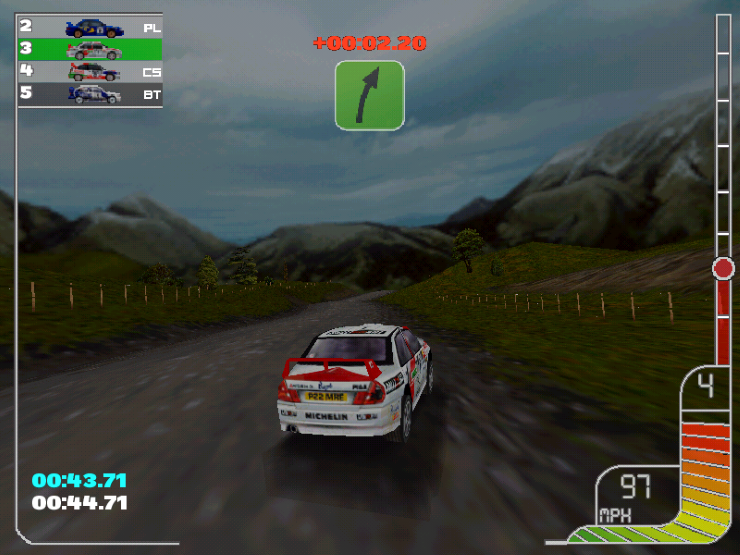
That Colin McRae game owes me months of my life, it was a brilliant game at the time. It pretty much lived in my PSone as the time. So I tell him so…
“Ha ha. Yeah it was a unique approach to the genre at the time. I worked mainly on TOCA when building the actual game but the physics was core to both. Obviously, the handling was tweaked to work differently on the two games.”
But what prompted the move from there to being part of setting up Bigbig Games?
“After four and a half years at Codemasters it felt like the right time. There had been a round of redundancies at the time and the atmosphere wasn’t great. It just seemed like moving on was a good idea. Then the opportunity came up to start Bigbig and things kinda aligned.’
For those unaware, Bigbig have developed several titles for Sony, up until 2012.
“Yeah. The two Pursuit Force games and MotorStorm Arctic Edge on PSP. Then Little Deviants on the Vita (as a launch title).’
It seems risky to go it alone, though. Was there much soul searching?
“After Bigbig closed I wasn’t sure what I wanted to do. And I needed a break. Years of co-running a company was pretty exhausting. So, I went travelling for a bit. While travelling I got the creative bug again and wanted to come back and make games again. I’d built up a list of ideas along the way. So, not much soul searching. The choice was get a job or start my own thing. The latter was more appealing because I could do everything on my own terms. It’ll either work out or it won’t. At least I’ll have tried.”
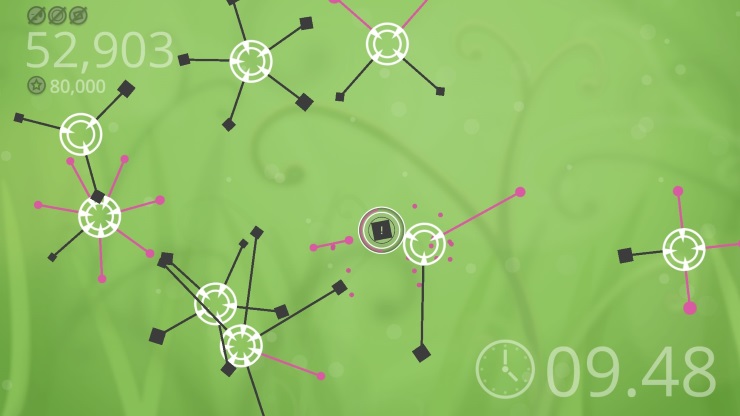
So Red Phantom came along in order to push you forward to start creating again?
“Red Phantom is just the vehicle by which to do these things. It’s a company, an identity, a brand – which is only important if it’s successful really. Minutes wasn’t the first idea. I was working on something else but ultimately decided that it wasn’t working out. So, I threw it away. Minutes was just one of those ideas that pops into your head at a strange moment.”
It seems that most of the better game ideas just seem to appear out of the blue and like the best ideas, Minutes follows an extremely simple mechanic that adds in additional complexities to increase the challenge. Having put some hours into it, it’s quickly become a game to grab and put in ten minutes here and there. It benefits from having no story or pretence for playing.
“The lack of story, context, theme, character, etc. is one of the important points of the design. Or even it was one of the things that inspired the idea. I’d been playing Assassin’s Creed 3 I think and was pondering what was so great about running across a forest all the time. It’s something that removed from the games that I played as a child. It’s more experiential than challenging. Nothing wrong with that but it led me to wonder what a game would be like with all the superfluous stuff stripped out. Other games do it. I always point to Super Hexagon. But, I wanted to consider what a minimalist game would be like on a console platform – so a little more to it in terms of controls and variation.”
For me, Minutes’ purity is certainly attractive to those tired of games being so full-on, and its brilliance is the fact it manages the one-more-go magic, but it sneaks up on you in the form of pattern learning and achieving that higher score, especially if you miss some of the colour in a level. I must have played the first level at least fifteen times to get the path correct.
“I appreciate it when people get the game. Not everyone likes it. But that’s fine. If you get bored of shooting people in the face then Minutes might be the game for you.”
As for my second point?
“Yeah. The game should kinda guide you along the right path but part of it is figuring it out.”
I’m intrigued to know if this did make the development process easier because of the style of the game or did Richard found he spent more time fine tuning because of the simple mechanics? To me, it’s very polished in its execution and the small touches stand out, like how the colour is added to the score. Richard knows that problem all too well.
“Tuning is very difficult. Even with a small set of mechanics you can only test on people that are available to you and make a judgement as to whether it’s right or not. Doing a full-on user test is usually out of the budget of indie developers so you have to make do. I managed to get in most of the details and there are some subtleties to the mechanics like the fact that the blast power-up fixes the Pulser objects into the light colour. That’s not in the instructions – they’re minimal too – but I like that people can discover these things along the way.’
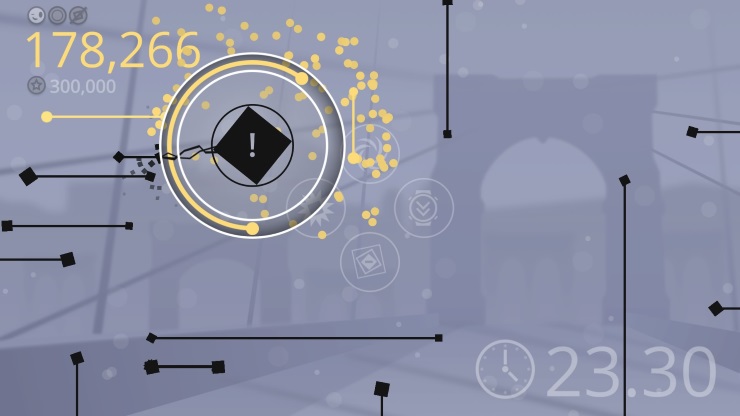
Richard also seems to be proactively adding new challenges on a daily basis…
‘Ha ha. No. It might seem like that but they’re randomly generated. I hesitate to say procedurally generated because it’s not that complicated. I don’t even know what tomorrow’s will be, though I can sneak a peek if I want to..”
And here is me thinking Richard is working till all hours on Minutes, another illusion shattered!
“There are enough variations to keep you going for the next 10 years if you want.”
Which is good to know considering how addictive the game can be once it has it’s claws in you.
How easy was it to get Minutes to market?
“Getting it to market is just a matter of going through the process with Sony. Various stages. Obviously, it’s all a bit more open now since they’ve embraced indies. Once it’s finished you plonk it up on the store. The hard bit is getting it noticed and selling enough copies.”
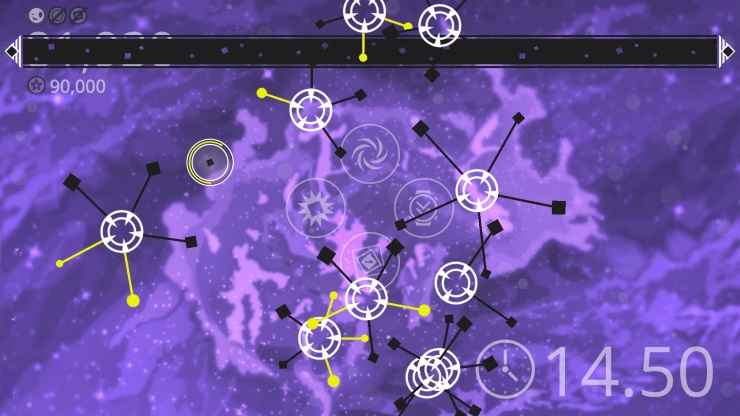
There seems to be more indie games on the market certainly in recent years…
“Yeah, and I think that’s a good thing. I’ve played enough FPSes, driving games, etc. I like to play something a bit different these days.”
Indies seem to bring fresh ideas. It’s almost like we are back to the days of the bedroom coders just experimenting for fun.
“Development is much more accessible to anyone now. We’ve got game engines all over the place. Unity is most prolific obviously. But, I always say that ideas are just that – a thing in your head. The big battle is implementing the idea and then finishing the game. I’ve got a list of 3 ideas – not all good for sure. But, that’s meaningless until it’s on a screen and playable at least as a prototype that can be taken forward (or discarded so you can get on with the next one).”
Does the existence of Steam Greenlight and the likes make it easier for smaller development companies like Red Phantom to get a game published?
“I couldn’t really comment on Steam having not gone through that process. I’m doing a PC version of Minutes so we’ll have to see what happens. I guess it’s helped some get to market and be visible. But, the more games there are, the harder it is to get discovered. That’s the challenge on any of the stores. More so in the mobile space. Hence, I steered clear of that initially.”
It’s about getting heard in the crowd then?
“Yes. The problem is increasingly discoverability.”
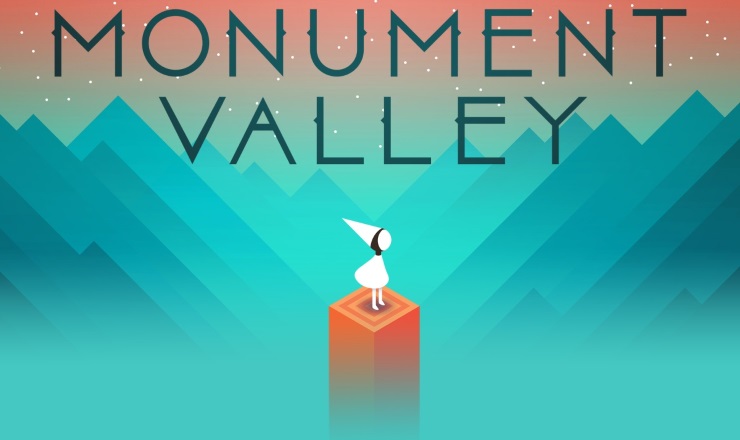
Can things like PS+ can be helpful?
“That’s one route for sure. I don’t really know what works to be honest. I’m taking the opportunity with Minutes to try different things. I think it’s a challenge for a lot of games to grab some time in the spotlight.”
Does a man who design games, still play them himself?
“Not much since Christmas which was all about a few mobile games (Monument Valley and 80 Days) and finishing Velocity 2X and putting many hours into Luftrausers. I’ve got a few piled up for a week off. Which might be soon. Shadows of Mordor is sitting in front of me now but mostly I’ve got a bunch of indie games on PS to play – Transistor, Counterspy, etc.”
Obviously, now that Minutes is out, I ponder if Richard was offered the chance to get involved in a large studio again, would he want to go back to working in that type of environment?
“Not at the moment. I’ve got a few things on Minutes on PC, working with another local company on a mobile game, just helping out Roll7 with OlliOlli and need to think about what my next game is. I’m hoping to start that in the summer. I might throw some Minutes DLC in there at some point if there’s enough demand. So, maybe next year. Or the year after that! That last bit referring to the job at a large company, not the demand for DLC!”
It is clear Richard has plenty to keep him busy in the meantime with other projects. He seems in no mad rush. It’s clear to me he’s enjoying everything he is involved in now. But why does Richard think you should play Minutes?
“It’s a videogame in pure form. If you want a stripped-back experience that will challenge you and make you say “oh, just one more go” then check it out. The visuals are clean; the music is great and locks in with the theme. Hopefully it’ll make you feel like you’re playing a true arcade game. And if you’re too young for that then it’ll be a fun, educational trip through minimalistic game design.”
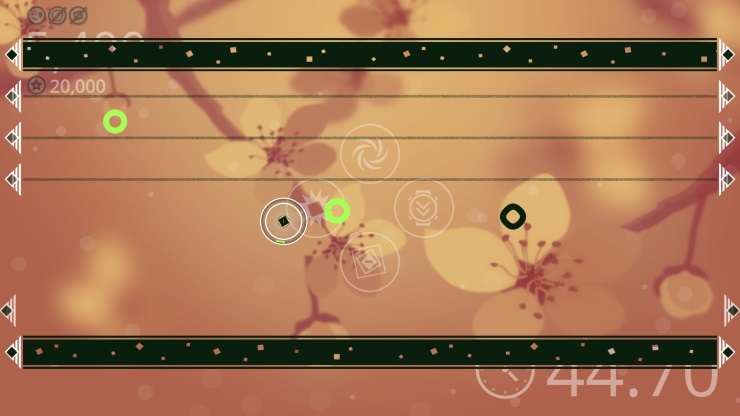
As someone that grew up with gaming from the mid-eighties, I know exactly where he is coming from.
“SHMUPs of various eras were obviously an influence. Though the older ones are my favourites, Xevious is the all-time best.”
For a moment that again takes me back to the time of 8-bit graphics and pixel explosions. Alas, I must finish off with the most important question – yes, the ketchup one.
“Hmm. I’ve not bought ketchup for a while…’
He pauses for what seems like an eternity. He doesn’t understand how important this is to GodisaGeek.
“Plastic squeezy bottle in the fridge. Glass bottle on the kitchen-top next to the salt and pepper.’
What a cop out, Richard…
“Cop out but honest!”
Which sums up the type of person I’ve been speaking to, and certainly describes Minutes. An honest, simple to learn, highly addictive game that is certainly worth minutes, if not hours of your time.
Minutes is currently available on PSN for PS4 and Vita in Europe and will be released in the US on February 10. Thanks to Richard for his time.


